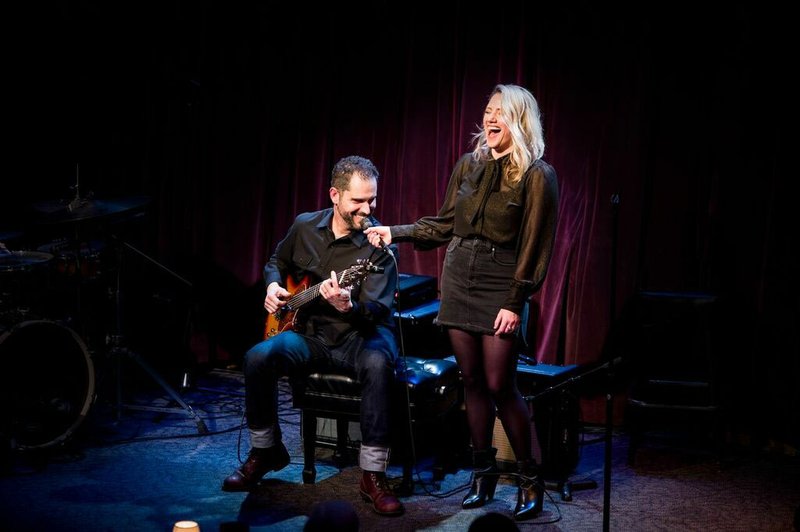Charlie Hunter gets a lot of people talking to him about his "blues" music. But the funny thing about music, the guitarist muses, is its subjectivity.
"I grew up with the blues. What does that mean? You know?" he poses.
FAQ
Charlie Hunter Trio
Co-curated by the NWA Jazz Society and Fayetteville Roots Festival
WHEN — 7 p.m. July 27
WHERE — North Forest at Crystal Bridges Museum in Bentonville
COST — $12 ($10/members); free under 18
INFO — 657-2335, crystalbridges.org, digjazz.com
BONUS — During the intermission, Crystal Bridges will host its annual lightning bug hunt with entomologist Don Steinkrause.
A lot of the music on the record player in Hunter's home growing up went back to "all the old country/blues stuff," he shares. Artists like Reverend Gary Davis, Mississippi John Hurt, Blind Blake and Robert Johnson are who he was raised on, sure. But when you're a kid learning the guitar, he points out, the last thing you want is to play your mom's music.
So Hunter found his own voice learning Beatles songs, of course, and popular soul songs of the time. Rock had an influence, too, and Charlie Christian's "cool jazz" was Hunter's introduction to that genre.
"I'm just always trying to grow and get better on my instrument and at music in general," he shares. "So you really have to go where the music takes you."
Today, the music has brought him to a place where he is widely known for his innovative writing, and considered the authority on the seven- and eight-string guitar -- which allows him to play both the bass and melodic line at the same time, on the same instrument. Critic Sean Westergaard with AllMusic.com described Hunter's technique as "mind-boggling ... he's an agile improviser with an ear for great tone, and always has excellent players alongside him in order to make great music, not to show off."
Ahead of his return to Northwest Arkansas on July 27, Hunter spent a few moments with What's Up! dissecting his sound.
On genre labels:
Back in my day it was just a marketing tool. Like, which section of the record store do you get put in? Now, I guess it's a marketing tool in that you have to decide what jazz is, you have to decide what blues is... But I think almost zero musicians think of it that way. The ones who are really good and really working on their craft, it doesn't matter where they come from or what the label they're assigned is. If they're put on a stage somewhere, they'll find a way to play with each other and it'll be good.
I don't know what kind of musician I am. I guess I'm a folk musician because I play for folks. It's all perception and it's all perspective, right? What's more important is knowing your influences and digging deep and never stopping the journey, never stopping practicing.
On the musical conversation between musicians on stage:
Especially between myself and the drummer, you have to have that rapport and you have to be able to keep the time feel right and all that, but you also have to be ready for dynamic shifts and you've got to be ready for even improvisational shifts -- all of these things.
On the improvisational element of his performance:
Oh, tons. Lucy [Woodward] is going to sing the song, but she never really sings it exactly the same way twice. But the form is going to remain the same. But within that form, I'm always doing little things to change it up at least a little bit. And then sometimes it's completely improvised; it just depends on the tune.
On the "Big Six" guitar he currently plays:
It actually is a six-string, but they're not related to a six-string guitar. It's related to a six-string guitar in the way a semi-truck is related to a Volkswagen. It's just a bigger instrument with a lot more range. And so the whole concept behind it is to be able to really think like a drummer in a lot of ways, and think like a really old blues guitar player where you have a couple parts going at once, but they're interrelated and they're inextricably linked to the grooves.
On what led him to the Big Six:
I think in the beginning I did it because I just wanted to find a way to show off. But ultimately it ended up being, the longer I spent with it, the more I realized that the magic it had to offer had nothing to do with really overt playing, but more covert stuff related to the groove and the time feel and dynamics and listening.
NAN What's Up on 07/21/2019

